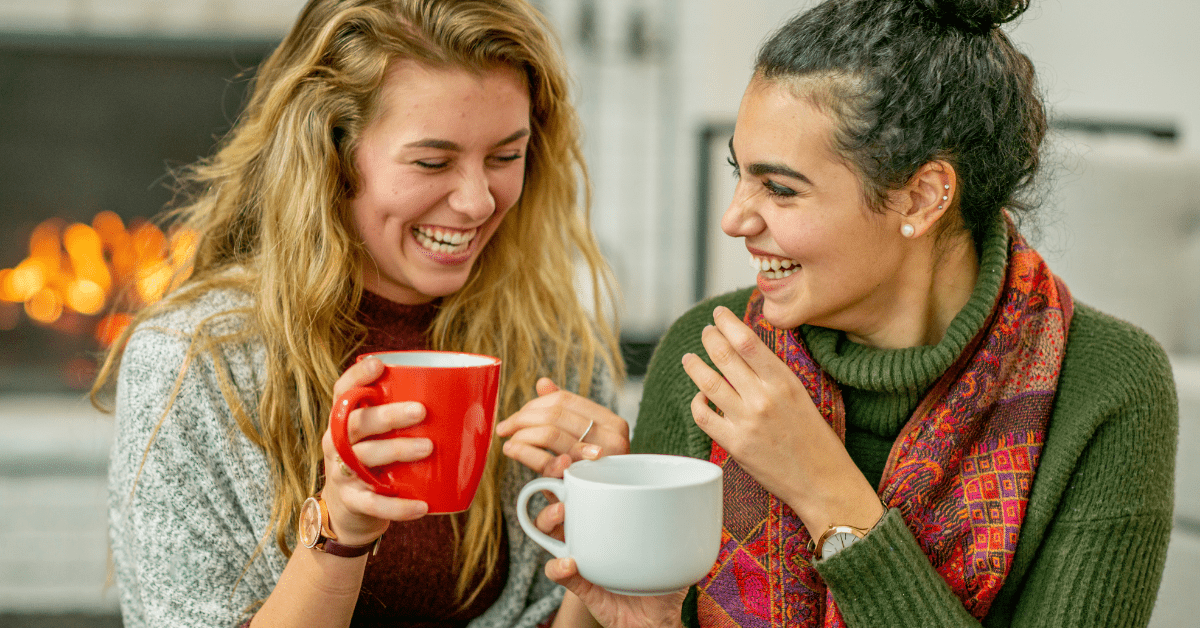When I first got sober, I was afraid to talk about it. I didn’t want people to judge me or put a label on me. I also didn’t want to risk the relationships in my life. It took me six weeks to tell my extended family and 6 months to tell the congregation I serve. I could not have been more surprised by their response. I received so many kind words, cards, and hugs. People stopped by my office to tell me their own stories or the stories of family members. Where I thought I would lose relationships, I actually discovered deeper ones.
Culture tells us that alcohol is a way to connect with friends, family, romantic partners, and strangers. But the reality is that shared experience, vulnerability, and authenticity are what make for great relationships. None of that is dependent on drinking and is often not even available to us when we’re drinking.
No one would have guessed that I was a “gray area drinker,” someone who well exceeded the number of daily drinks recommended by the CDC (one for women, two for men). I was very high functioning and didn’t qualify as an alcoholic but I definitely had a problem. I was constantly creating rules for myself about when and why I could drink, wondering when I could have my next drink, and making decisions about social events based on the availability of alcohol. I would often continue drinking after I got home from an event. I was constantly tired, cranky, and numb.
In search of joy
I was trying to escape stress and difficult emotions but as Brené Brown says in Daring Greatly, “there is no such thing as selective emotional numbing. When we numb the dark, we numb the light.” When we “take the edge off” the pain and vulnerability that comes with discomfort, then we’re also dulling the good feelings, like joy. “When we lose our tolerance for discomfort, we lose joy.”
I wanted more joy, so I stopped drinking. And while there was plenty of rediscovered joy, there was also a lot of discomfort. I had to figure out habits, new ways of coping, new ways of spending my leisure time, and new ways of socializing. As a relatively young person, this is more difficult than it sounds. Lots of my leisure and social time was spent sharing conversation at the local brewery with friends and congregation members.
In congregational life
Many congregations sponsor events like “Theology on Tap” or “Beer & Hymns” to help people connect in a casual and less structured way. If those are our only ways of building community, where does that leave folks who are struggling with their drinking or in recovery? When we buy into the cultural normalization of alcohol use, we are implicitly telling people in recovery that there is not a place for them in our congregations.
Best practices
How can we make our social events one where everyone can connect? Here are some questions to ask and ideas for including sober people in events inside or outside of the church:
- If you are offering alcohol at an event, also offer an equally attractive non-alcoholic beverage. A simple Shirley Temple, Heineken 0.0, or specialty soda goes a long way in making sober people feel included. Please don’t just leave us with the option of water or Sprite.
- If someone isn’t drinking at your event that features alcohol, don’t ask them why or make a joke about it. Just offer to refill their cup with whatever they’re drinking without comment.
- If you know someone is sober and you’re planning to invite them to your event that has alcohol, check in with them and ask if they’re ok with people around them drinking. Some people aren’t bothered by it, but if they are, this gives them the opportunity to decline the invitation.
- If someone leaves your event without saying good-bye, don’t take it personally. This is a strategy many in recovery use when being around alcohol gets to be overwhelming. They are protecting themselves.
- Don’t stop inviting non-drinkers. People in recovery often get left off invite lists because they are not drinking. Even if they don’t come, they’ll appreciate being included.
- Ask if your event really needs alcohol to be successful. Could it be just as successful if you offer dessert or appetizers or gourmet hot chocolate and teas?
Asking these questions and taking these actions makes us vulnerable. But the good news is that we’re not called to be perfect. Instead we’re called to take risks on behalf of the well-being of one another. Pursuing the options here and other ways of supporting non-drinkers, leads us to a more authentic hospitality, one that leaves room for all of God’s beloved.



